Goal Setting and Goal Management Software
Goal setting and management software platform helps businesses set and achieve their goals with ease. Our goal tracking software is designed to enhance productivity and foster a culture of accountability, driving you towards success.
Set and Achieve Strategic Goals
Goal setting and management software has become essential for businesses of all sizes to help them achieve their strategic goals. In the current hybrid working climate, the need for effective and efficient business goal setting software is even higher.
OKR software (Objectives and Key Results) is an increasingly popular choice for businesses looking to boost their productivity, increase collaboration, and reach their goals.
Features of 10xWinners Goal Setting and Management Software
Our goal setting software has intuitive features to help users create realistic goals and measure their progress.
Vision and Mission
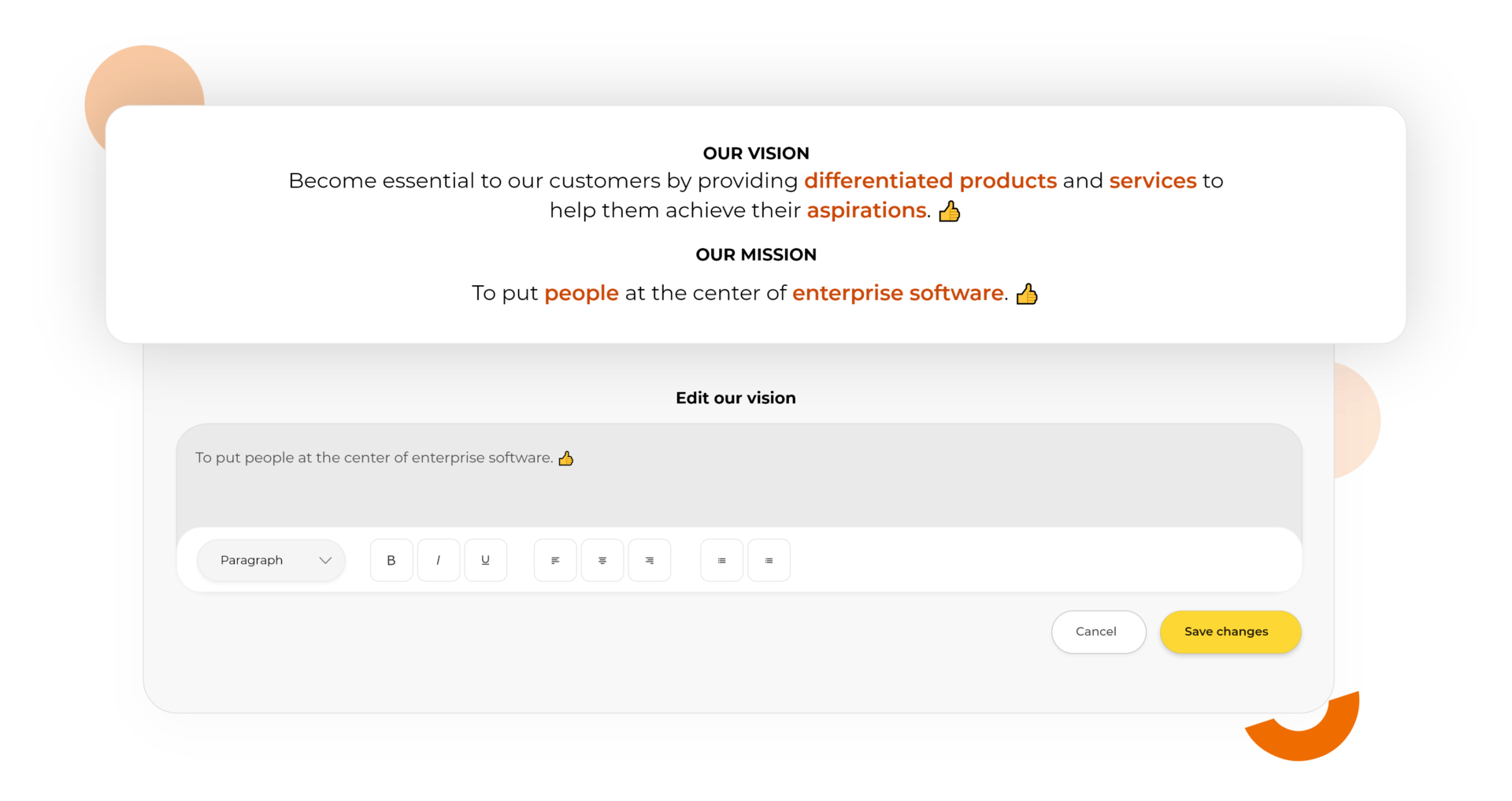
Organization Goal Setting
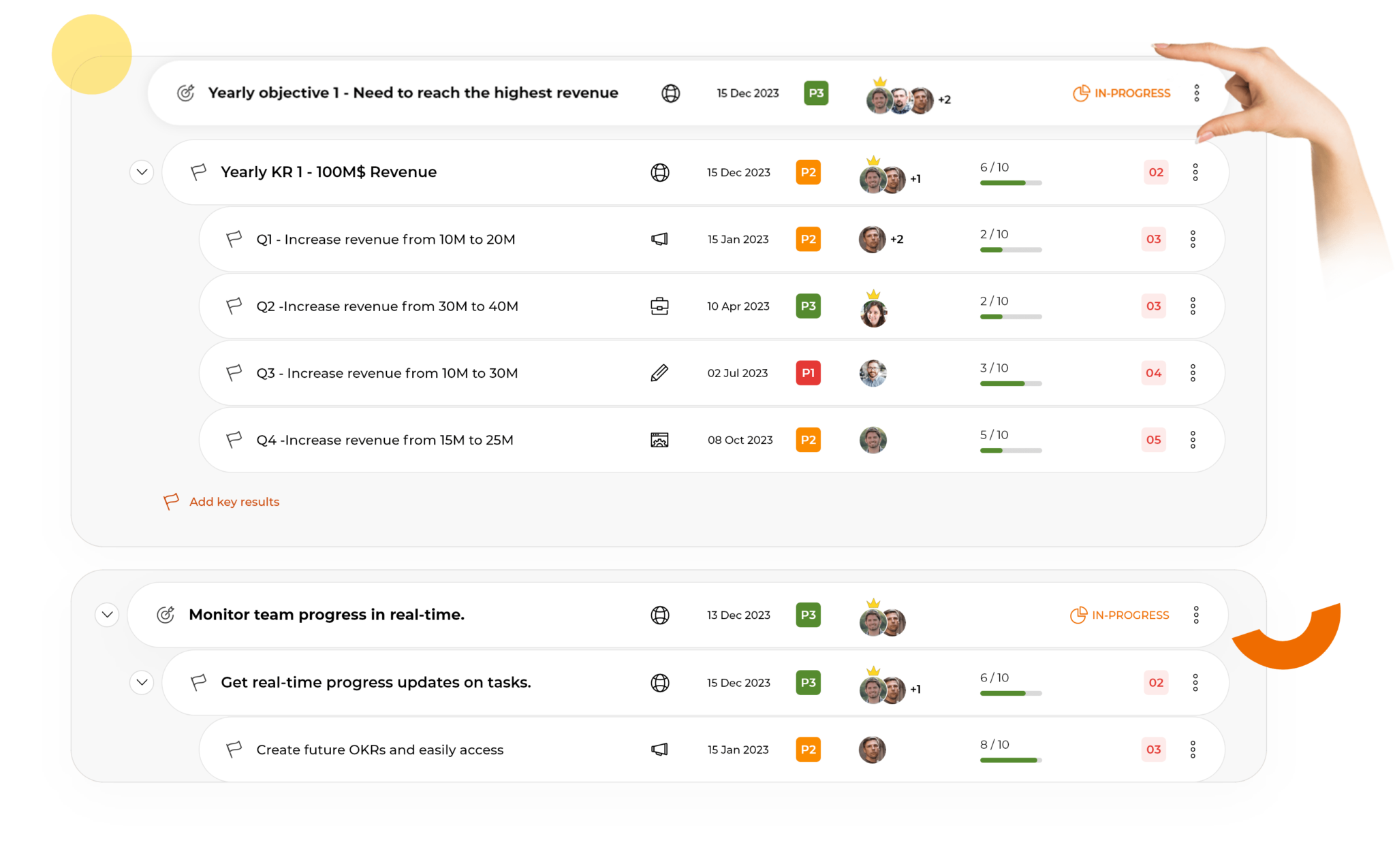
Committed and Aspirational OKRs
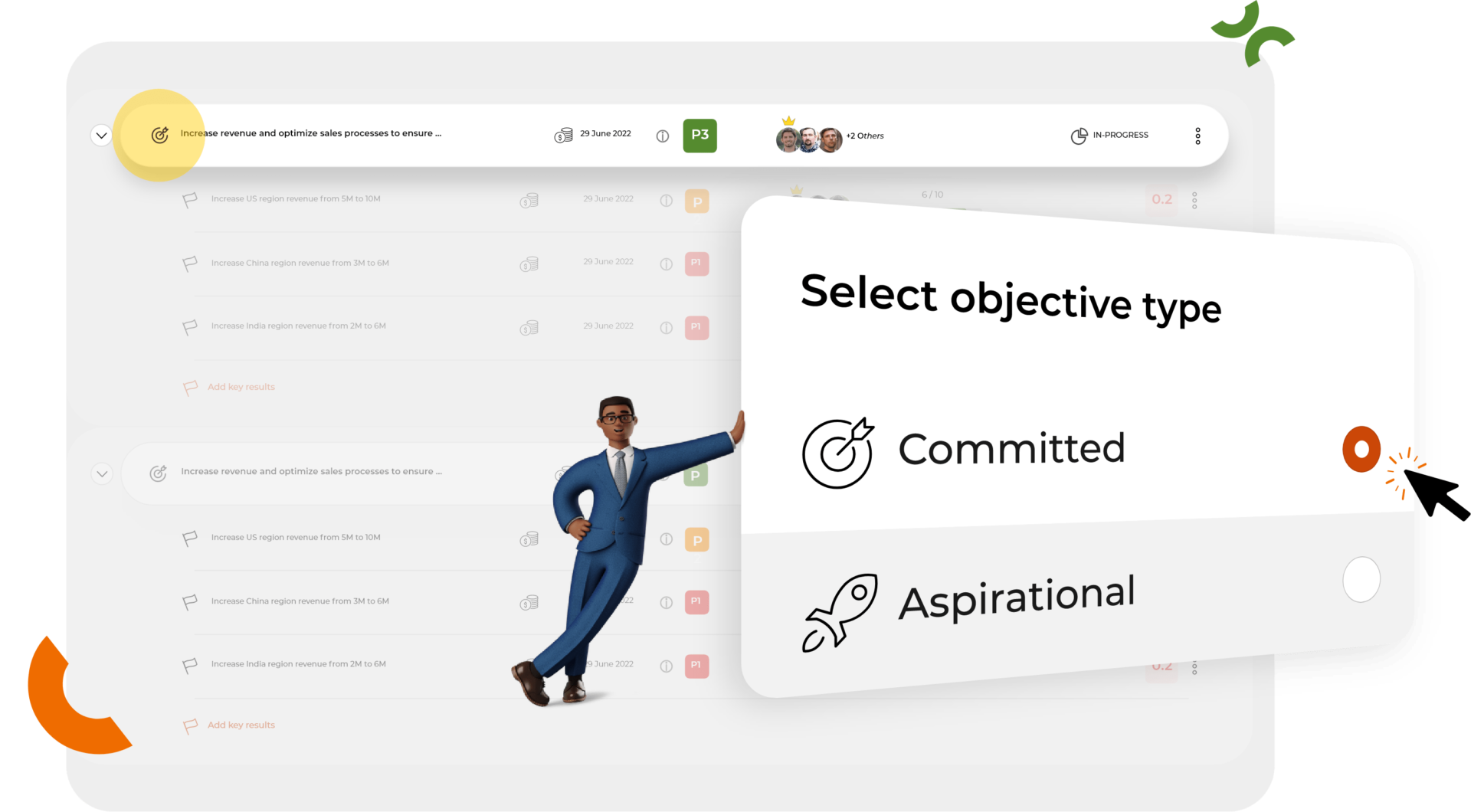
Reminders for Your Goals
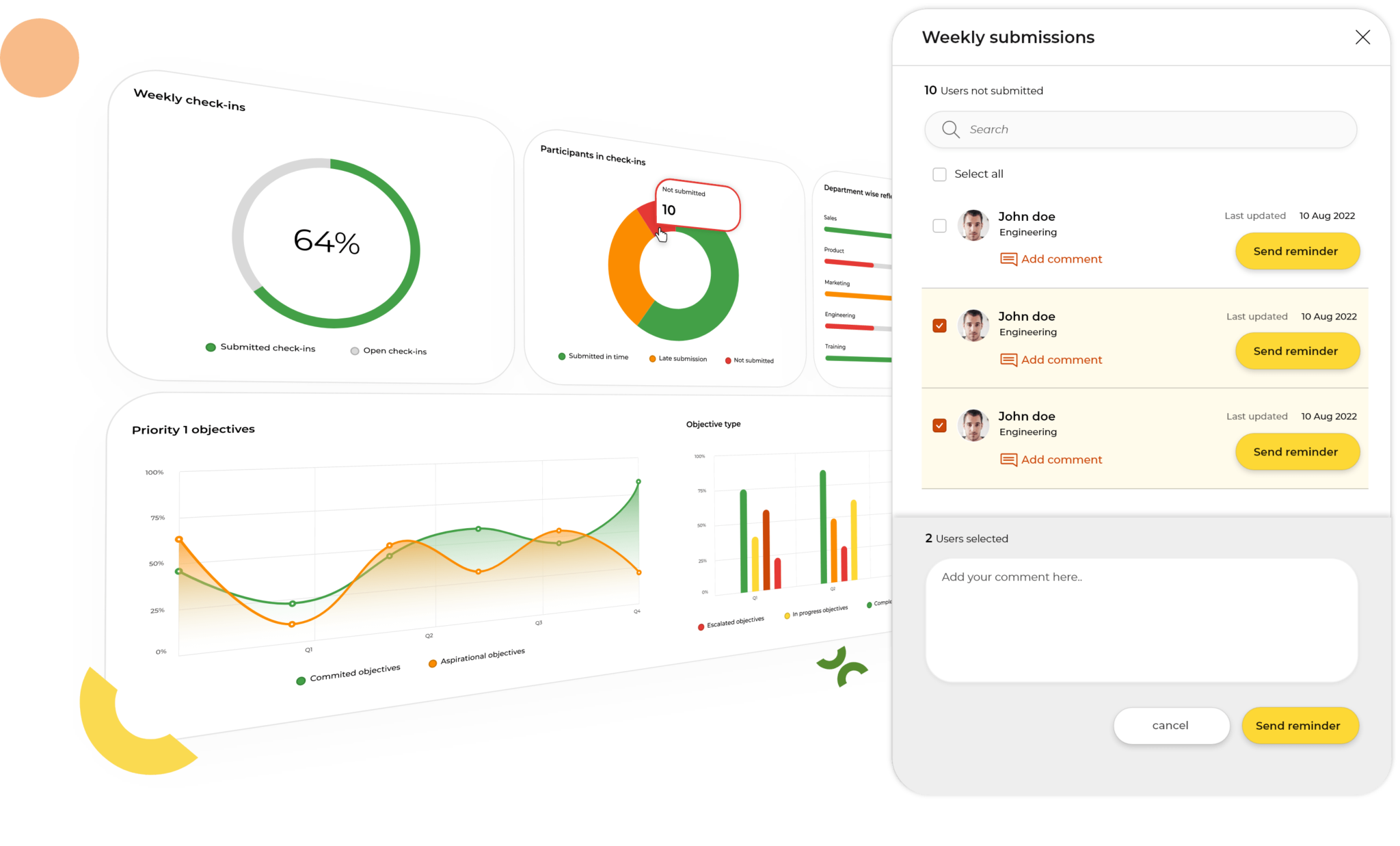
Dashboard & Analytics
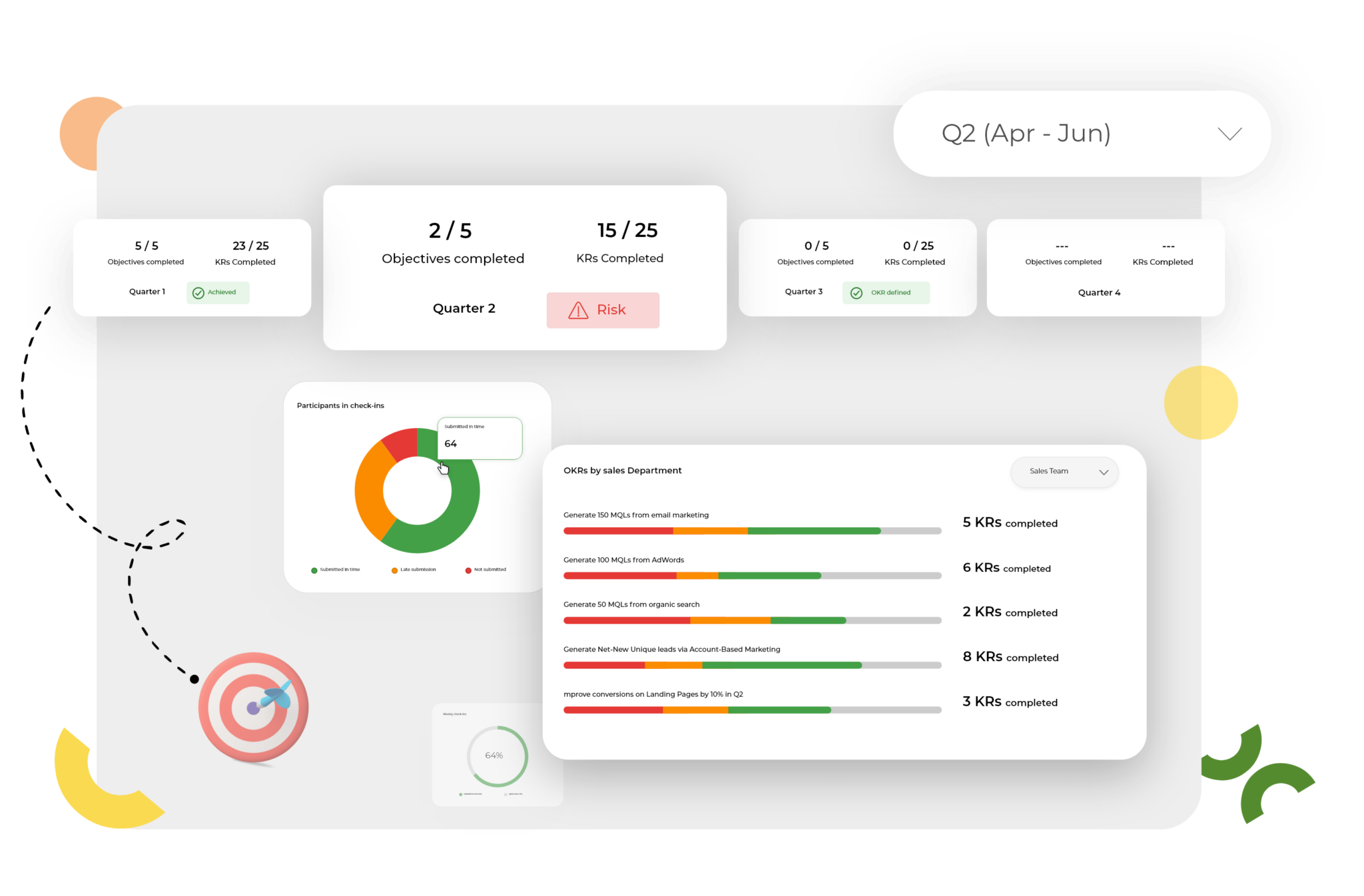
What Makes 10xWinners Goal Setting and Management Software Different?
Our goal management software is built to help organization to align the vision across the organization and our unique yealy OKRs setting option with Q1, Q2, Q3 & Q4 breakup helps you be more focused. Also teams work more effectively and efficiently. It provides a single platform for tracking and managing all types of goals whether they are individual, team, or organizational. With this software, users can easily keep track of their progress on different goals and collaborate with colleagues to ensure their success.
What makes our Goal Management Software different? Our goal management software stands out from the competition in several ways. For starters, it includes an extensive set of templates that allow users to create and manage OKRs in real-time with ease. Also the OKRs can be clearly defined as committed OKR or asprination OKRs with the required priorities(P1, P2, P3).
Our goal management software also has powerful analytics tools that allow teams to measure their performance against pre-defined metrics such as completion rates, deadlines met and budget constraints met. This helps teams identify areas of strength and weakness so they can make necessary changes to achieve success quickly and easily.
Furthermore, our goal management system is designed to be user-friendly so even less technical users can get up-and-running quickly without having any prior knowledge or experience with similar systems. And finally, we offer comprehensive customer support for the life of the product so you’ll never have to worry about being left in the dark when it comes time for troubleshooting or implementation issues.
So why the wait? Contact our team right away and let’s get started on setting your goals.
Top Goal Setting and Management Software
Setting and managing goals is key to success in any endeavor. Explore the top goal-setting and goal-management software that streamlines the journey to achievement:
Asana: Known for its user-friendly interface, Asana offers task management features ideal for setting and tracking goals within teams.
Trello: A visually appealing platform, Trello allows users to create boards, lists, and cards, making goal setting and progress tracking a breeze.
OKR Software: Dedicated OKR platforms like Gtmhub or WorkBoard focus on aligning objectives and key results, enabling seamless tracking and management.
Jira: Primarily for agile project management, Jira can also be adapted for goal setting, especially in tech-driven or development-focused teams.
ClickUp: A versatile platform that combines various project management features, making it suitable for goal setting, task tracking, and collaboration.
Goalscape: Known for its visual representation of goals using a radial chart, Goalscape provides a unique approach to goal setting and progress visualization.
SMART Goals: Apps like Goals on Track or Strides are designed around the SMART (Specific, Measurable, Achievable, Relevant, Time-bound) goal-setting framework.
Microsoft Planner: Integrated with the Microsoft Office suite, Planner offers simple task and goal management software, ideal for teams using Office 365.
Notion: An all-in-one workspace, Notion allows customizable goal-setting and project management through databases, boards, and templates.
Monday.com: Renowned for its flexibility, Monday.com offers a customizable platform suitable for various goal-setting methodologies and team structures.
Selecting the right software depends on team size, specific needs, and preferred goal-setting methodologies. These platforms streamline the process, enhancing collaboration, transparency, and ultimately, goal achievement.
Still curious? Click here to find out 15 Best OKR Software in 2024: In-Depth Comparison and Reviews
Goal Setting and Management Software Insights 2023
Related Articles
Organizational
 Empowering Your Team: The Impact of Clear Organizational Goal Setting
Empowering Your Team: The Impact of Clear Organizational Goal Setting
 The Role of Leadership in Organizational Goal Setting
The Role of Leadership in Organizational Goal Setting
 The Significance of Organizational Goal Setting: Why it Matters and How to Do it in the Right Way?
The Significance of Organizational Goal Setting: Why it Matters and How to Do it in the Right Way?
 Difficulties of Organization Goals and How to Over Come This?
Difficulties of Organization Goals and How to Over Come This?
 How to Cascade Goals Effectively Across Organizations Using OKRs?
How to Cascade Goals Effectively Across Organizations Using OKRs?
Frequently asked questions
The purpose of goal management is multifaceted, aimed at optimizing individual, team, and organizational performance. Its primary objectives include alignment, clarity, engagement, performance management, decision-making, communication and collaboration: It ensures that efforts are focused, resources are optimized, and progress is monitored in line with overarching strategic objectives.
In today's ever-evolving business climate, it is critical that organizations establish a solid foundation of goal setting. OKR (Objectives and Key Results) goal setting provides the structure needed to align and hone their efforts towards reaching desired main objectives while providing visibility into the performance of individual teams or departments.
This unique technique pulls from the collective experience of the organization giving leadership and managers insight into how they are doing in terms of reaching expectations and inspires them to reevaluate if needed.
OKRs are a great way to stay organised and make sure we focus our energies on what really matters, by enabling us to prioritise important tasks. By plotting some of our most crucial, longer-term goals within the framework of OKRs, we're establishing a clear line of sight as to which tasks need our attention above all else; whether they be day-to-day activities or that project at work that needs extra care and attention.
Reviewing how your objectives and key results (OKRs) were executed is essential to finding out what worked and what didn't for the next round. After setting these, it's good practice to review them every quarter or after each project you undertake. Doing this allows you to set faster and more accurate goals with continual business progress tracking so you don't lose sight of the results you're aiming for.
A breakdown in setting OKRs could occur for numerous reasons. For instance, without clear objectives and definitive key results, a team’s energy and focus could become scattered; and just like a poorly-cooked omelette, the result will be something that’s tough to swallow.
Another possible problem is when targets are set too low and individuals are not adequately challenged to perform their best – they may feel their efforts lack purpose or that there’s not enough pressure to produce quality output. On the other hand, if targets are overambitious it can stir up feelings of disempowerment, leading to workplace frustration or even sub par performance due to overwhelm.
In the planning process, setting goals involves several steps to ensure clarity in the desired outcomes such as identifying objectives, assessing current state, clarifying vision, setting priorities, involving stakeholders, defining KPIs, creating action plans & communicating goals. By following these steps, organizations can effectively set goals within the planning process, ensuring they are well-defined, achievable, and contribute to the overall success of the entity.
Goals management within an organization typically encompasses various types of goals that contribute to its overall success and progress. These goals can be categorized into different areas such as strategic goals, operational goals, financial goals, client goals, employee goals, development goals, social responsibility goals and risk management goals. These various types of goals are interconnected and contribute to the holistic success and growth of an organization.
Setting goals is the starting point for success. Without clearly defined goals, it's impossible to know what success looks like and how quickly it can be achieved. It's essential to be aware of your goals so you don't get off track or become overwhelmed by the journey ahead. Knowing what our ultimate destination is helps us stay motivated and focused on achieving our objectives.
Taking a moment to reflect on both long-term and short-term objectives can also help identify where course corrections may need to be made in order to achieve our intentions. After all, having a plan is only half the battle - implementing it is what ultimately leads to victory!
10xWinners Insights
Contents
